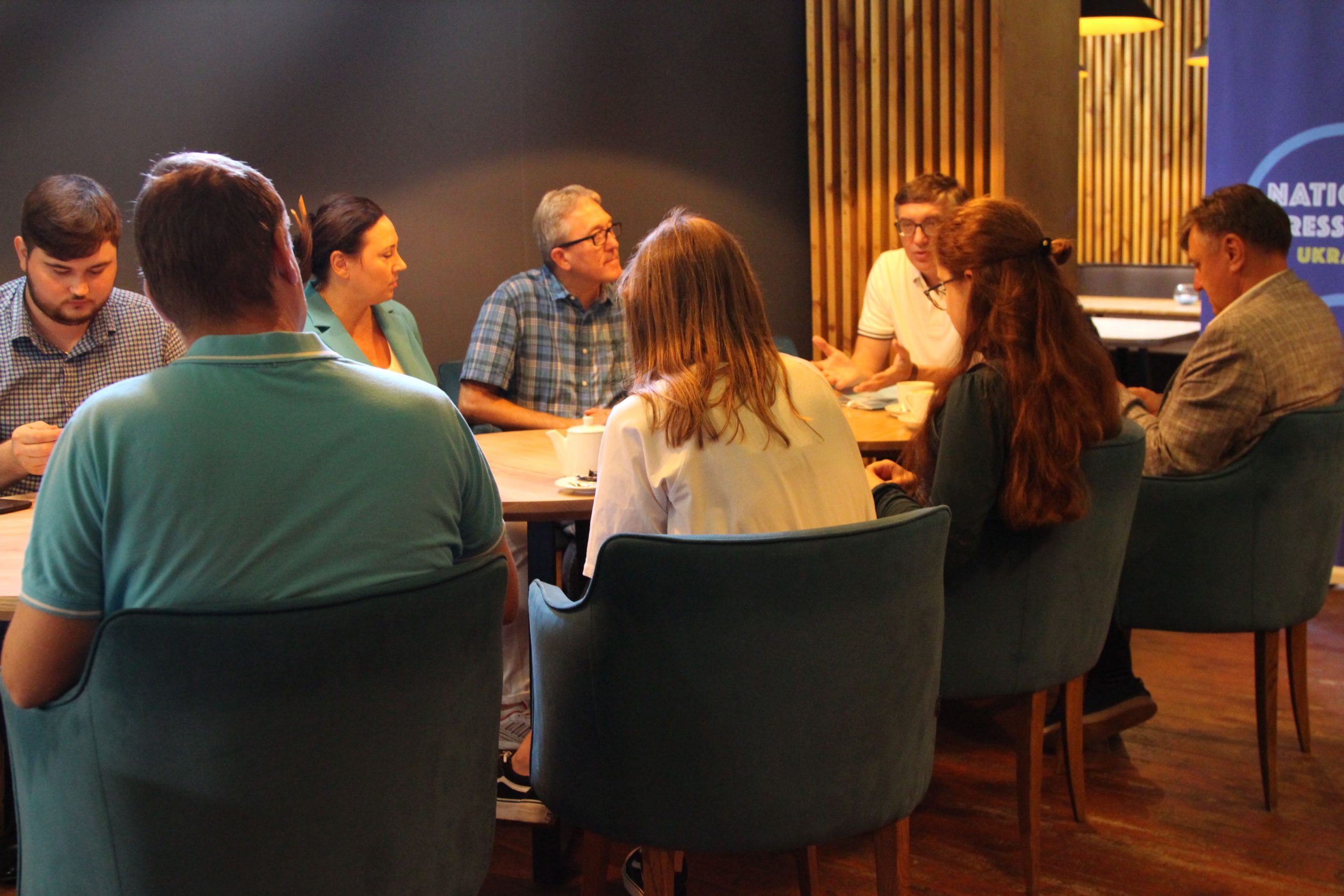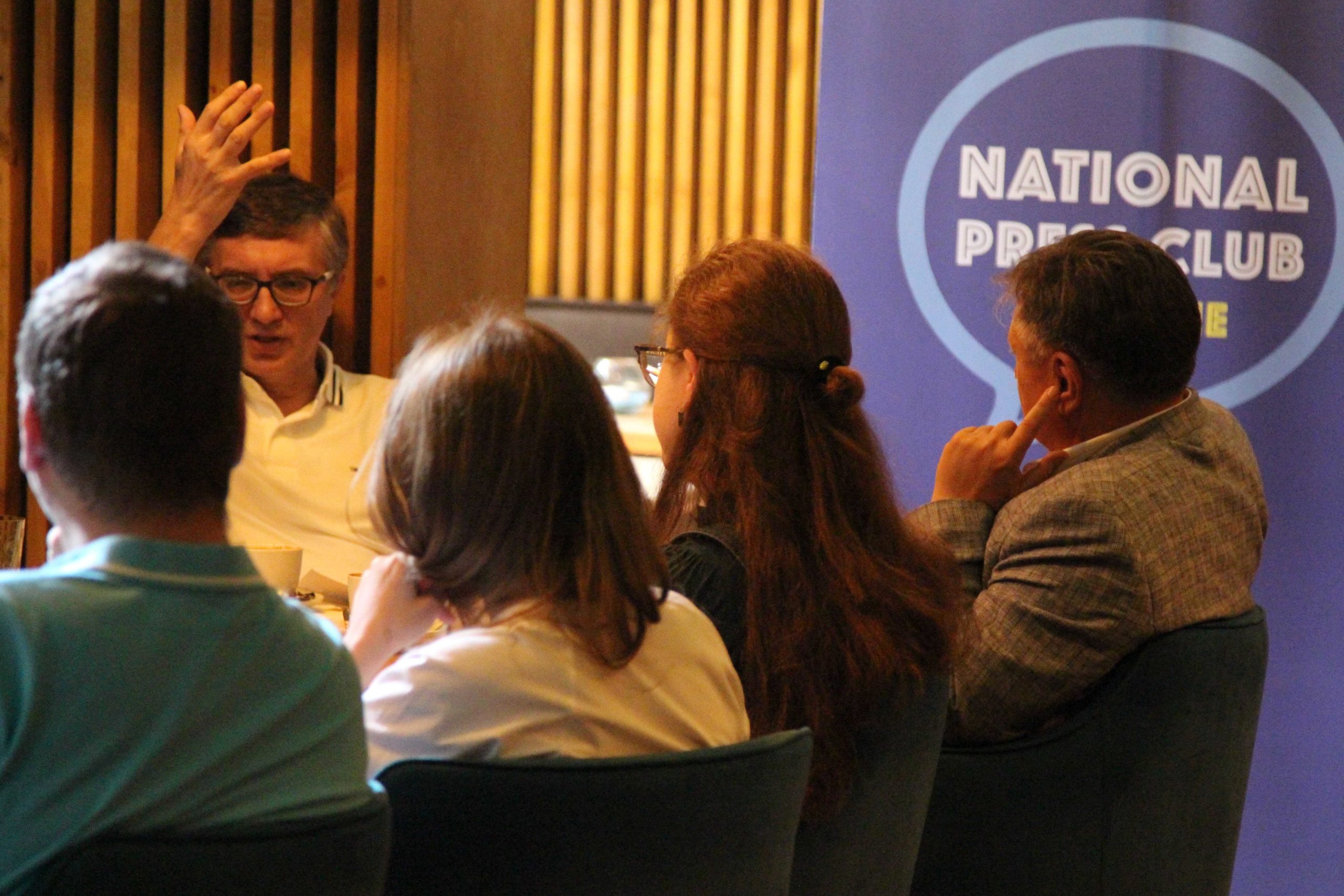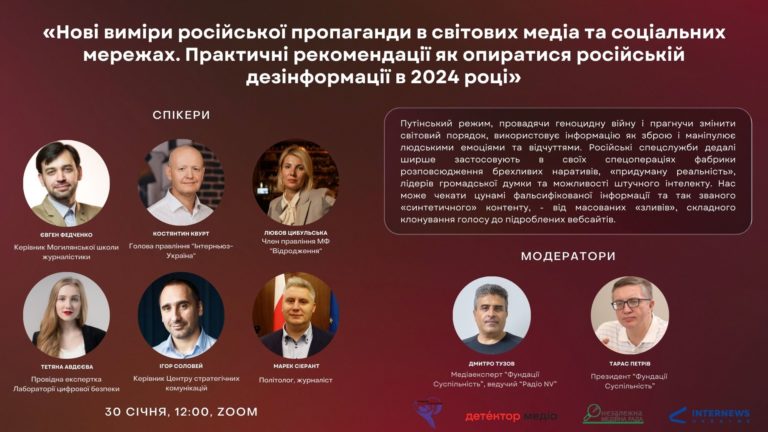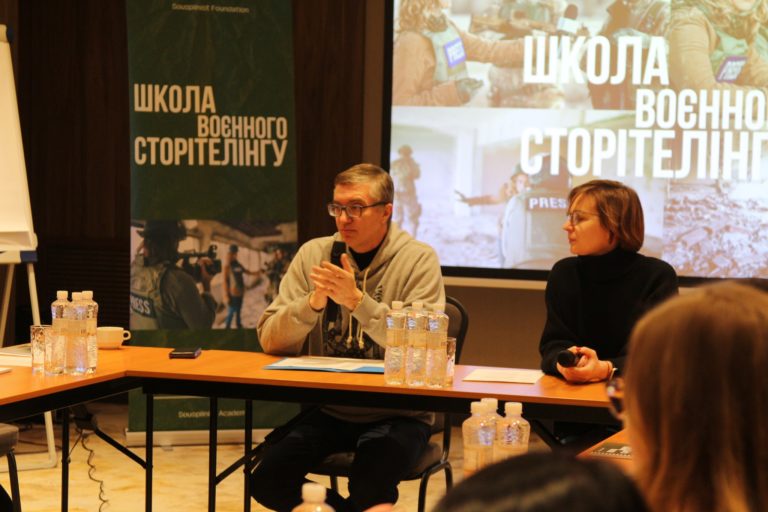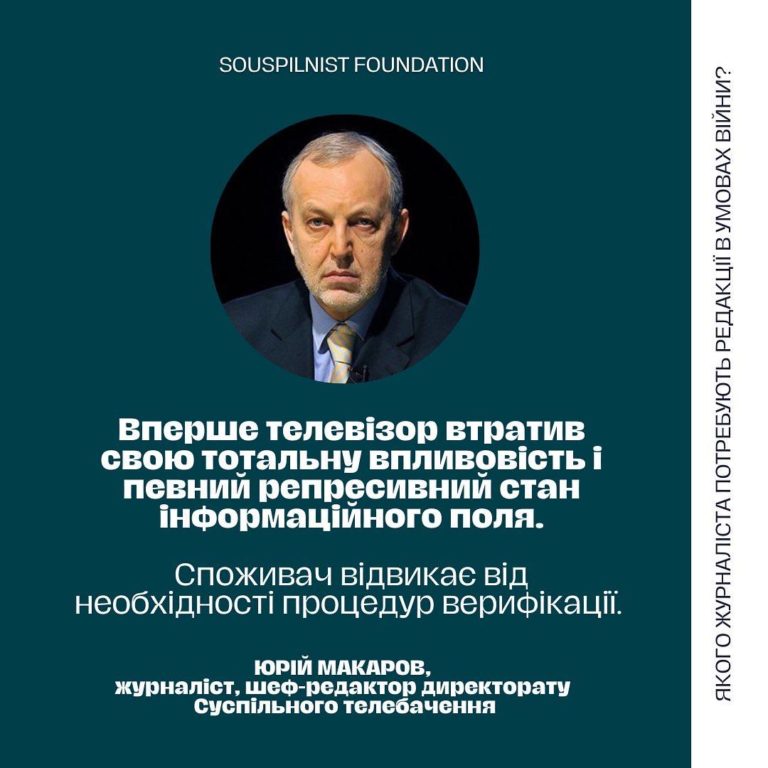What are the challenges faced by international journalism in Ukraine? What are the ongoing changes in the work of international affairs journalists, and what is the direction to move in? These and other questions were discussed during the roundtable on “Modern trends in international journalism”.
The participating in the discussion were Mykhailo Prudnyk, head of the international department at Channel 5, Oksana Tkachenko, a correspondent of the international department at 1+1, Olena Kurenkova, a journalist of the international department at Hromadske, Serhiy Danylenko, Doctor of Political Science at the Institute of International Relations of the Taras Shevchenko KNU, Roksolana Lisovska, head of the international department at UA:PBC, Taras Petriv, president of Souspilnist Foundation, Adrian Karmazyn, chief of the Ukrainian Service of the Voice of America (2005-2015), Olha Hresko, associate professor at the Institute of Journalism of the Taras Shevchenko KNU, and Yevheniy Pylypchuk, a journalist at Interfax Ukraine.
The participants, in particular, discussed the tendencies in forming and developing international departments in various types of media outlets, the possibilities of developing a network of correspondents abroad and covering the main international events of the year.
According to Roksolana Lisovska, international news is among the most popular with various types of media. Audiences are interested in news about wars and environmental disasters (because their safety globally depends on this), and about entertainment, e.g. the life of pandas, when they are overwhelmed by the glut of complex news stories. And this should be taken into account when programming.
According to the experts, the major challenges for international journalism in Ukraine are the lack of personnel, burnout at work due to high levels of stress and considerable media business losses.
Journalists come to work at an international department, see that there’s not much money here, and go to work in other spheres. And that’s a big problem, said Mykhailo Prudnyk.
Therefore, in journalism and, in particular, in international journalism, there is a task to find new formats of interacting with audiences, with an emphasis on the media’s eventual profitability.
Given that, the trends in the media sphere include mastering new tools for promoting content to reach out to various audiences, rethinking their audiences and transitioning to a format of convergent newsrooms, said Olena Kurenkova. Conventional television is losing ground, with digitalization encompassing more and more spheres.
Television and digital stuff coexist. We should look ahead to not lose young audiences that don’t already watch TV today, “catch” them before it’s too late, get them interested in international news and guide them for the next ten or twenty years, said Oksana Tkachenko.
Another trend to follow by international journalism is building a network of correspondents located in “information capitals” abroad. It is particularly important not only for promptly getting information but also for enhancing the experience and level of work of international affairs journalists focusing on covering events in other countries.
In Yevheniy Pylypchuk’s opinion, it is important to raise the level of training in international journalism at the regional universities. A special thematic training course should also be launched specifically for regional journalism.
Olha Hresko noted that engaging freelancers and representatives of foreign audiences without expert knowledge is one of the options to develop a correspondents’ network.
“Considering international content, attracting new audiences is very beneficial, people can create content locally, under the brand of different media outlets, engaging in people-to-people diplomacy in the world,” added Olha Hresko.
The roundtable was organized by Souspilnist Foundation within the framework of the National Press Club Ukraine and with the support of the Independent Media Council.
